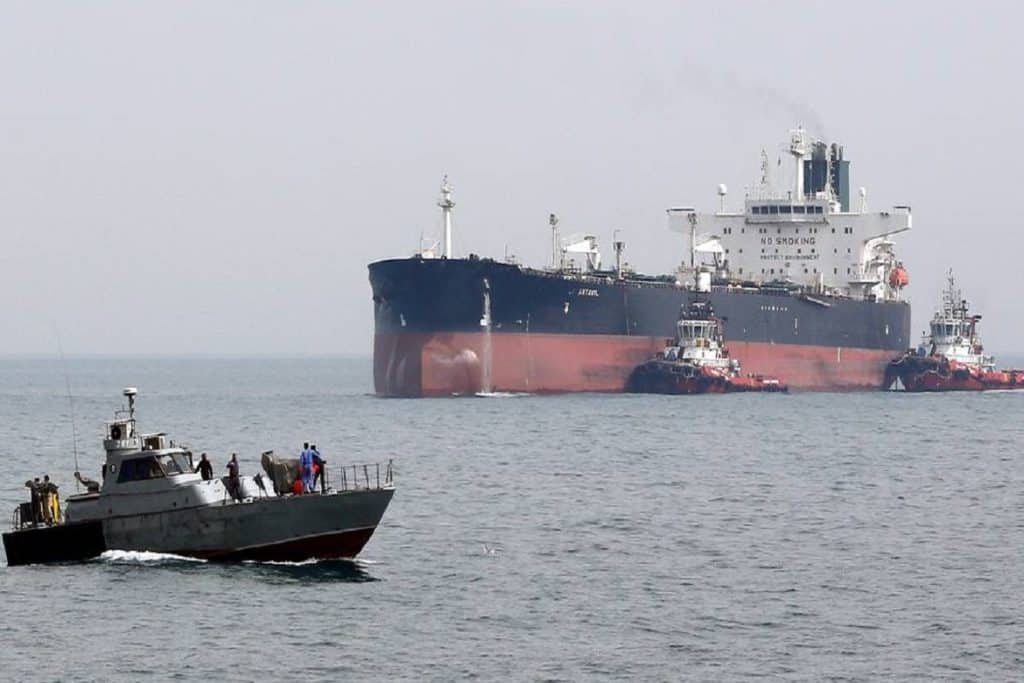By Denis Korkodinov
Moscow came up with its own concept of providing a regional security system in the Persian Gulf. The main mechanism for ensuring peace in the region should be the Organization for Security and Co-operation in Europe.
In fact, Russia did not offer anything new, since the presented concept reflects the aspirations of Moscow, implemented over the past 10-15 years. However, the attitude of the Arabs towards Russia as a result of its Middle East policy, which introduces significant changes in the geopolitical vision of regional crises, has become new.
Since 2007, the international community has been actively pursuing plans to create a new geopolitical architecture in the Persian Gulf in order to adapt it to the policies of the United States, China and India and create a stable conglomerate of countries that can repel any regional threat. The main initiator of this process then was Washington, which, amid the withdrawal of troops from Iraq, was seriously concerned about the need to develop a new approach to solving problems in the Middle East and the Persian Gulf.
At present, the baton has crossed over to Russia, which could compete with the United States in the sense that it mediates between various regional power groups. This approach was actively implemented by a former head of the Russian government, Yevgeny Primakov, who in his political activities tried not to take the side of any of the participants in regional conflicts, preferring to be a friend to everyone. This allowed Moscow through its intermediary role to promote its own interests. However, amid US-Iranian tensions, Russian plans were in jeopardy, as a result of which the Kremlin faced the need to develop a new concept of regional security that would meet his interests.
Beijing supported Moscow’s aspirations only because it also sought to protect its interests in the region, since the conflict between Tehran and Washington poses a threat to China’s use of the port of Gwadar in Pakistan and Djibouti.
The controversial point is how the United States, the Gulf countries and Russia will build their relations in the future, given the fluctuations of the Arab world towards Moscow. Undoubtedly, Washington’s influence in the Persian Gulf is still quite strong, but Donald Trump’s extremely controversial policy towards Iran is alarming the Arabs, who are beginning to look more closely at Russia. In turn, Moscow offers a new vision for resolving the conflicts existing in the region, which is very impressive to the leaders of the Arab countries.
Meanwhile, the strengthening of Russia’s positions in the Persian Gulf can be used to the detriment of the national interests of regional players. The key moment in this process may be Yemen, where Washington is trying to influence Arab leaders in order to fuel conflict, while Moscow is trying to take a diametrically opposite approach.
One way or another, Russia intends to be an active side party in the process of resolving regional conflicts. The upcoming tour of the President of Russia to the countries of the Arab world, scheduled for September 2019, seems to be pursuing this very goal.
But, in any case, in order to attract the attention of Arabs, Moscow must offer something new from what Washington cannot currently offer. For example, Moscow may prompt Tehran to create an international control system to prevent any provocation against oil tankers in the Strait of Hormuz. Such a position will significantly strengthen Russia’s influence, thanks to which the concept of regional security that it proposes will be approved by all regional participants.
(The views expressed in this article belong only to the author and do not necessarily reflect the views of World Geostrategic Insights)
Image Credit: TASS/EPA-EFE/ABEDIN TAHERKENAREH







